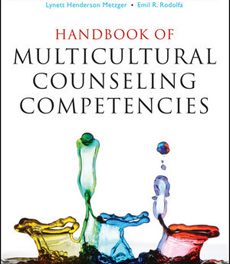Author: Debbie Jordan
Publisher: Outskirts Press. 163 pages
Book Review by Paiso Jamakar
This book is a compassionate compilation of essays written over the years by Debbie Jordan in a column for the Arizona City Independent Edition.
Her fervent belief – which is the thesis of this book – is that poverty and peace cannot co-exist. For there to be peace in the world, poverty must be eradicated? Can permanent peace and total elimination of war be achieved in your lifetime? Unfortunately leaders of many countries are not naturally magnanimous, so they have not done much to alleviate poverty in their lands.
Also, she contends that wars have occurred over the millennia and continue to persist till today because they are profitable for the winners.
We believe that countries rich with certain resources have been exploited enviously by rulers of other nations who covet those resources, often under the guise of instilling or installing freedom. In other words, war is profitable; peace is not.
She writes in her “Ode to Peace”:
“Wars may be expensive
but peace certainly isn’t profitable
except for those privileged few
who rake in
all the profits of war.”
Debbie Jordan has a plan to banish poverty that will lead to permanent peace around the world. But she writes that “peace takes a lot of hard work, day in and day out.” More about her peace plan later.
She points out: “peace is not merely the absence of conflict. Establishing and maintaining peace will take far more creativity, dedication and hard work than war ever did. True peace would be much cheaper and far less traumatic than any war, but to date, no one has been able to pull it off.”
In her book, she spells out her “creative ideas for ending poverty everywhere.” She says that when everybody on earth is able to “enjoy at least the basic benefits of prosperity” we will finally have the conditions for lasting peace for the “first time in history.”
Why is it that there are multi-billionaires in the richest and poorest countries and at the same time, many of the poorest of the poor cannot even feed themselves adequately day after day? Some of those billionaires’ passive incomes alone can not only feed millions, but can be invested in health care and education programs that can lift them out of poverty permanently.
While in today’s world, we see the philanthropy of numerous super-rich people that has put in place such poverty-alleviation programs, much more needs to be done.
Before outlining Debbie Jordan’s plan for peace in the world, let us take a brief look at the origins of poverty. Here’s a little historical perspective she provides on how and why poverty persists in the world today.
Over the years, feudal lords have directed the creation of wealth for their personal benefit by controlling capital and labor. In the history of many nations, in the plantations for example, the workers lived on the estates owned by the land owners, sowed the seeds and harvested the produce that was sold by their employer in the markets. The owners paid their workers a relatively small wage for their sustenance. The workers’ children followed the footsteps of their parents for generations.
With more workers, the landlords grew richer as their capital and labor resources increased, which were re-utilized, and the cycle went on and on, creating an upper class of wealthy and high-income people and a lower class with meager resources and income.
This pattern of exploitation of people by their fellowmen has persisted over the centuries the world over. Countries with plentiful resources (such as agricultural produce and oil for example) have been dominated by rulers who never saw any need to change this system. In such places, with the ownership of keys assets and commodities in the hands of the monarchs and their families and friends, extreme disparities in assets and income between the “haves” and the “have-nots” has led to long-term poverty for generations for much of the population.
That old feudal system of dominance of many people by a few who hold the key resources of capital and labor (the main components of power) has evolved over the years and is now reflected in the current system of large corporations continuing to have these two resources, plus an additional ones such as knowledge and access. While hundreds of millions of people have been able to lift themselves out of poverty, there still remain many mired in a meager subsistence level.
Debbie Jordan’s plan for establishing peace with the banishment of poverty consists essentially of providing everyone with the means of earning an income about twice the amount required for basic needs. She writes:
“We must develop a global system in which every person is provided with the means to work according to their individual skills and abilities in exchange for an adequate salary.”
Having read the book which includes important chapters on how to provide universal health care, universal education and universal employment, my understanding of Debbie Jordan’s plan to achieve peace by gradually minimizing poverty consists of this:
The way for people to acquire the skills is with education, but this should be preceded with providing health care for those who need it. Once these two basic needs of health care and education are met, employment skills can be acquired, if needed in specific job-training programs. Some of the income earned by people from employment should be invested for their future security when they are unable or too old to work. These are the key ways to minimize poverty and income equality, which will lead to peace.
Debbie’s passion for peace is reflected throughout her book. She has put together a succinct plan for what the people of the world – but unfortunately, not the rulers of nations – have been yearning for, for centuries. When will wars become unprofitable? Possibly, when most people have enough, and the war mongers, including rulers and presidents, no longer find it profitable to engage in war.






